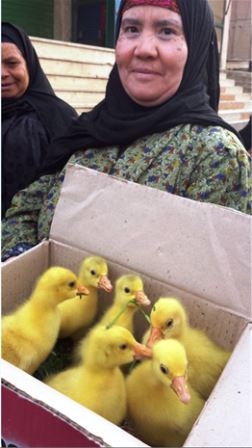 Avian influenza H5N1, commonly known as bird flu, has been circulating in the domestic poultry market in Egypt since 2006 and has led to human infections. The best way to prevent infection with bird flu is to avoid sources of exposure whenever possible. Stay safe and take the following precautions.
Avian influenza H5N1, commonly known as bird flu, has been circulating in the domestic poultry market in Egypt since 2006 and has led to human infections. The best way to prevent infection with bird flu is to avoid sources of exposure whenever possible. Stay safe and take the following precautions.
- Do not visit poultry farms or markets where birds are sold or displayed.
- Do not touch or slaughter sick or dead birds.
- Avoid touching surfaces that have bird droppings or fluids on them.
- Always practise safe hand washing, especially before and after handling raw poultry and eggs. Wash your hands with warm water and soap for a minimum of 30 seconds. When warm water and soap are unavailable, use a waterless alcohol-based (at least 60% alcohol) hand sanitizer.
- Ensure that poultry is well cooked. Boiled eggs and thoroughly cooked poultry (70 C in all parts) are safe to eat.
Working closely with birds
If you are involved in keeping, breeding, trading or transporting poultry it is recommended to:
- Keep poultry in enclosures away from the home.
- Cover poultry cages to prevent infection from migrating birds.
- Wear protective equipment and remove immediately after required use.
- Practise safe hand washing after dealing with poultry.
- Do not raise poultry on rooftops as this easily leads to spread of infection.
- To dispose of dead birds, bury them in a deep hole or pour water and chlorine on them and put them in the rubbish in sturdy bags.
If you work closely with birds and have flu-like symptoms (fever, chills, muscle ache) go to hospital immediately.








